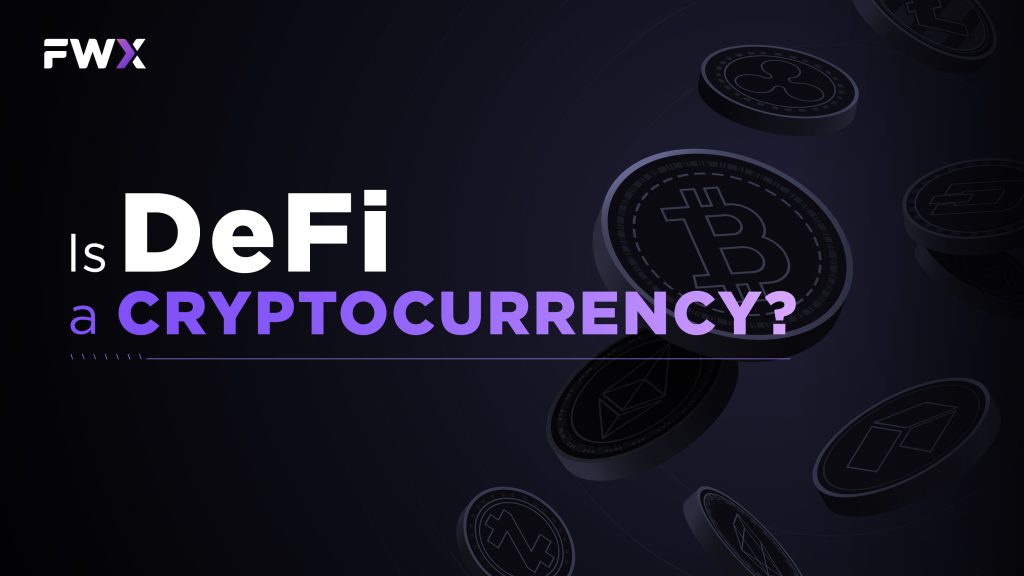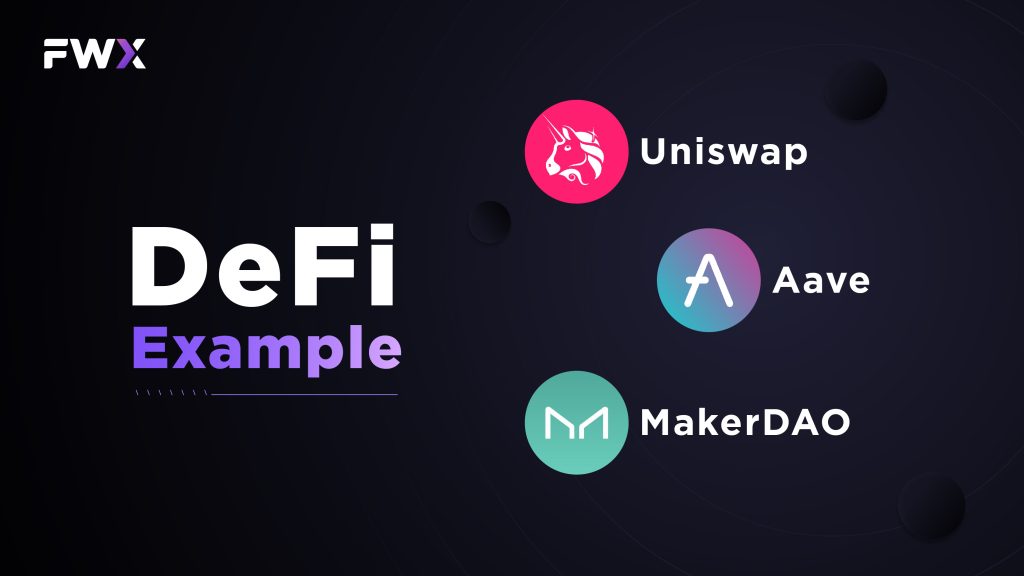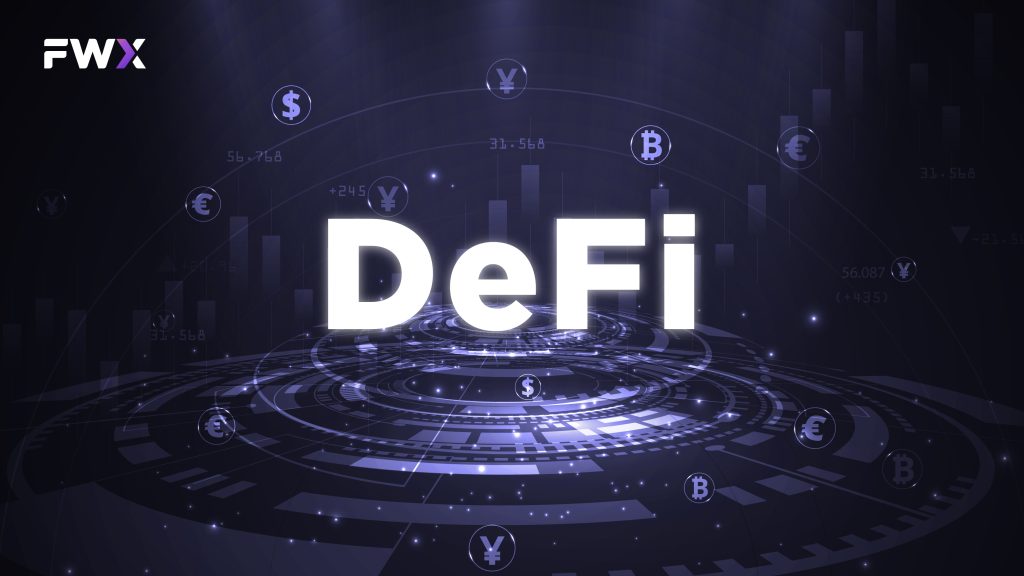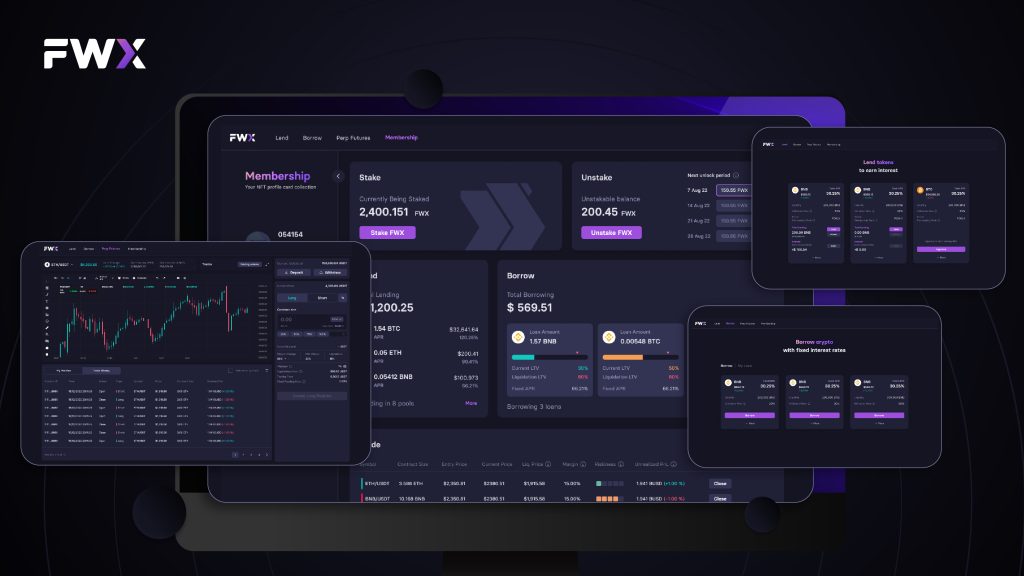Discover how DeFi is revolutionizing the traditional financial system by empowering individuals with greater financial freedom and control through innovative blockchain technology and decentralized applications.
Is DeFi a cryptocurrency?

It is a new paradigm of financial services built on blockchain technology that provides users with financial services without intermediaries. While cryptocurrencies are an essential component of DeFi, DeFi itself is not a cryptocurrency.
Cryptocurrencies are digital assets that are used as a medium of exchange and store of value. They are typically built on blockchain technology and are secured by cryptography. DeFi, on the other hand, encompasses a broader range of financial services such as lending, borrowing, trading, and asset management.
DeFi platforms are built on blockchain technology, which enables the creation of smart contracts. These smart contracts are self-executing contracts that automate the enforcement of terms and conditions. DeFi applications use smart contracts to provide financial services without the need for intermediaries like banks or financial institutions.
DeFi applications use cryptocurrencies as the underlying assets for their services. For example, in a DeFi lending platform, users can lend their cryptocurrencies to borrowers in exchange for interest payments. Similarly, in a DeFi trading platform, users can trade cryptocurrencies with each other without the need for a centralized exchange.
What is DeFi vs crypto?
DeFi, or decentralized finance, and crypto, or cryptocurrency, are two closely related concepts that are often used interchangeably. However, there are some key differences between the two.
Crypto refers to digital assets that use cryptography to secure and verify transactions and to control the creation of new units. Bitcoin and Ethereum are examples of cryptocurrencies. Crypto is often used as a store of value, a means of exchange, or a speculative investment.
DeFi, on the other hand, refers to a system of financial applications built on top of blockchain technology that aims to provide financial services that are accessible to everyone, without the need for intermediaries such as banks or financial institutions. DeFi applications use smart contracts to automate the execution of financial transactions, such as lending, borrowing, and trading.
In other words, crypto refers to the underlying technology, while DeFi refers to the specific use case of that technology.
While crypto and DeFi are related, DeFi represents a new frontier in the world of finance, with the potential to disrupt traditional financial institutions and democratize access to financial services. As DeFi continues to evolve, it is likely to play an increasingly important role in the global economy.
What is an example of DeFi?

DeFi, or decentralized finance, refers to a new breed of financial systems that are built on decentralized networks such as blockchain. These systems are designed to operate without the need for intermediaries such as banks or financial institutions, and are typically open source and transparent. Here are three examples of DeFi applications:
- Uniswap: Uniswap is a decentralized exchange (DEX) that allows users to trade cryptocurrencies without the need for a centralized exchange. It is built on the Ethereum blockchain and uses an automated market maker (AMM) system to provide liquidity for trading pairs. Uniswap has become one of the most popular DeFi platforms, with over $3 billion in daily trading volume.
- Aave: Aave is a decentralized lending platform that allows users to borrow and lend cryptocurrencies without intermediaries. It uses smart contracts to facilitate lending and borrowing, and users can earn interest on their deposits. Aave has become one of the largest DeFi platforms, with over $10 billion in total value locked.
- MakerDAO: MakerDAO is a decentralized stablecoin platform that allows users to mint and trade stablecoins pegged to the value of fiat currencies such as the US dollar. It uses a system of collateralized debt positions (CDPs) to maintain the value of its stablecoin, DAI. MakerDAO has become one of the most important DeFi platforms, with over $2 billion in total value locked.
Can you make money with decentralized finance?

You can make money with decentralized finance (DeFi) just like you can with traditional finance. In fact, it is gaining popularity as an alternative to traditional finance due to its open, transparent, and decentralized nature.
One way to make money with DeFi is through yield farming, also known as liquidity mining. Yield farming involves lending or staking cryptocurrencies in a protocol to earn rewards in the form of tokens or fees. The returns on yield farming can be much higher than traditional savings accounts and can range from 1% to over 100% annually.
Another way to make money with DeFi is through trading. DeFi platforms offer decentralized exchanges (DEXs) where users can buy, sell, and trade cryptocurrencies without the need for a centralized authority. Trading fees on DEXs can be lower than on traditional exchanges, and traders can also earn profits from price fluctuations.
Furthermore, it also provides opportunities for borrowing and lending cryptocurrencies. Borrowers can borrow cryptocurrencies without the need for a credit check or collateral, while lenders can earn interest on their holdings.
Is DeFi a good investment?
DeFi provides a decentralized alternative to traditional financial services, enabling users to access a wide range of financial instruments and services through a decentralized network of applications.
As with any investment, there are risks associated with investing in DeFi. However, if you are willing to do your research and invest wisely, DeFi has the potential to generate significant returns.
Benefits of Investing in DeFi
- Decentralized: One of the most significant benefits of investing in it is that it is decentralized. This means that it is not controlled by any central authority, government, or financial institution. Instead, it is governed by smart contracts that are executed automatically on the blockchain. This provides a level of transparency and security that is not available in traditional financial services.
- Access to a wide range of financial instruments: DeFi provides users with access to a wide range of financial instruments, including loans, savings accounts, insurance, and derivatives. These instruments are available to anyone with an internet connection and can be accessed without the need for intermediaries like banks.
- Transparency: Because it is decentralized, all transactions are transparent and recorded on the blockchain. This provides users with greater transparency and reduces the risk of fraud and corruption.
- Low fees: Because it is decentralized, it can operate with much lower fees than traditional financial services. This means that users can access financial services without having to pay high fees to intermediaries.
- Potential for high returns: It is still in its early stages, and there is a lot of potential for growth and innovation. This means that there are many opportunities for investors to generate significant returns.
Risks of Investing in DeFi
- Volatility: Like any investment, it is subject to market volatility. Prices can fluctuate rapidly, and there is a risk of significant losses if you invest in the wrong project or at the wrong time.
- Smart contract risk: It relies on smart contracts to execute transactions automatically on the blockchain. While smart contracts are designed to be secure, they can still be vulnerable to hacking and other types of attacks.
- Regulatory risk: It is still a relatively new industry, and there is a risk that regulators may impose new regulations that could impact the industry’s growth and potential returns.
- Liquidity risk: Because it is decentralized, liquidity can be a problem. This means that it can be difficult to buy or sell assets quickly, which can result in losses for investors.
- Complexity: It is a complex industry, and it can be challenging for investors to understand the technology and the risks involved.
How to Invest in DeFi

If you are interested in investing in it, there are several steps that you should take to minimize your risks and maximize your potential returns.
- Do your research: Before investing in any project, you should do your research. Read the project’s whitepaper, check out their social media channels, and look for reviews from other investors.
- Diversify your portfolio: To minimize your risks, you should diversify your portfolio. Invest in multiple projects to spread your risks.
- Use a decentralized exchange: To buy and sell assets, you should use a decentralized exchange (DEX). DEXs operate on the blockchain, which means that they are decentralized and more secure than centralized exchanges.
- Understand the risks: It’s important to understand the risks involved in investing in it. Make sure you are aware of the potential risks, such as market volatility, smart contract risk, regulatory risk, liquidity risk, and complexity.
- Start small: When investing in it, it’s important to start small. Invest only what you can afford to lose and gradually increase your investments as you become more familiar with the industry.
- Stay informed: It is a rapidly evolving industry, and it’s important to stay informed about new developments and trends. Follow industry news and join communities to stay up-to-date.
In conclusion, DeFi has the potential to be a good investment for those who are willing to take on the risks. The industry is still in its early stages, and there are many opportunities for growth and innovation.
Is Decentralized finance safe?
Decentralized finance (DeFi) has been gaining popularity in recent years, with more people using decentralized applications (dApps) to manage their finances. However, the question of whether DeFi is safe is a valid concern for users.
One of the main advantages of DeFi is that it operates on a decentralized blockchain, meaning that there is no central authority or intermediary controlling the system. Transactions are executed on the blockchain through smart contracts, which are self-executing programs that enforce the rules of the network.
However, DeFi is not immune to risks. One major risk is smart contract vulnerabilities, which can lead to the loss of funds. Smart contracts are created by humans and can have coding errors, which can be exploited by attackers. Additionally, DeFi protocols are subject to hacking attacks, as seen in several high-profile incidents in the past.
To mitigate these risks, DeFi platforms are implementing various security measures, including audits, bug bounties, and insurance coverage. Users should also take precautions, such as using hardware wallets to store their assets and verifying the security of the dApps they use.
Conclusion
Decentralized Finance, or DeFi, is a new paradigm of financial services that use blockchain technology and smart contracts to provide users with financial services without intermediaries like banks or financial institutions. While cryptocurrencies are an essential component of DeFi, DeFi itself is not a cryptocurrency. DeFi encompasses a broader range of financial services such as lending, borrowing, trading, and asset management. DeFi platforms are built on blockchain technology, which enables the creation of smart contracts. These smart contracts are self-executing contracts that automate the enforcement of terms and conditions. DeFi applications use cryptocurrencies as the underlying assets for their services. DeFi represents a new frontier in the world of finance, with the potential to disrupt traditional financial institutions and democratize access to financial services.


